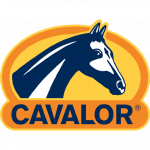The condition of the coat reflects your horse’s health
A horse that looks great on the outside is also healthy on the inside. Care products can enhance a lovely appearance, but can’t deliver the true sheen that comes from healthy body & gut.
Mental and physical health are inextricably linked
A horse’s physical health is determined by an ingenious system – the immune system. The gastrointestinal tract is an important link in this system and is the first step towards a healthy horse.
Intestines as a measure of health
A healthy GI system starts just after birth. As soon as a foal starts to drink colostrum (the first milk a mare gives to her foal) it acquires immunity through antibodies entering the bloodstream, but also bacteria – both beneficial and harmful – also start to colonize the large intestine.
Bacteria that are beneficial to intestinal health are permitted to stay and are called bacterial flora or microflora. There are also strains of bacteria with a negative impact on health. These bacteria are called pathogens and are expelled. Beneficial bacteria co-exist in harmony with the horse and they are mutually dependent for survival.
Good bacteria break down the fibers into volatile fatty acids supply the horse with a large quantity of energy. These fatty acids also have a significant influence on cell health, and consequently on the horse’s general health.
Fatty acids come in various types. Microflora can create certain fatty acids themselves, while the horse has to absorb others via its feed or supplements.
Omega, Omega Omega...
Everyone knows omega 3, 6 and 9 fatty acids. What is important is not only the quantity of these fatty acids, but the relationship between them.
Omega 3: Horses are naturally accustomed to a diet rich in omega 3 from the grass and foraging in the field.
Omega 6: Grains are rich in omega 6 and contain a very low concentration of omega 3 fatty acids. Today’s rations tend to be rich in omega 6, while in natural conditions the diet would be rich in Omega 3.
Current feeding & training habits can disrupt the balance between omega 3 and omega 6 fatty acids and its very important to feed your horse products that offer the right balance of omega 3 and omega 6.
How to correct the imbalance?
One way is to put your horse out to pasture during summer, and add extra omega 3 fatty acids in winter in the form of supplements or oils.
A word of caution – not all oils are suitable for this purpose. Linseed oil, canola oil and fish oil contain high levels of omega 3 fatty acids.
Omega 9 get less attention, but it is still very important. These fatty acids play a role in prostaglandin production and are also crucial to cell functioning among other things. Contrary to the other fatty acids, a horse can manufacture omega 9 fatty acids in the body, so giving as a supplement is not strictly necessary. The production of omega 9 fatty acids is however influenced by the balance of omega 3 and omega 6 fatty acids in the body.

Extra vitamins and minerals : is it really necessary?
It depends… does your compound feed contain enough vitamins and minerals? If so, and your feeding at the recommended feed rate, then providing extra vitamins and minerals makes little sense.
Important: Check Vitamin B levels in the compound feed. Vitamin B isn’t always added at an appropriate level.
A healthy large intestine is key to absorption and ultimately the key for fully utilizing the feed ration. If a large intestine isn’t working well, additional supplements will likely not be utilized by the animal anyway.
Supporting the large intestine with extra omega 3 fatty acids can certainly be beneficial with a combination of linseed & canola oil.
Disruptions: A change of diet, excess sugar and starch, molds, antibiotics, mycotoxins and many other factors can disrupt the harmonious balance in the large intestine. Harmful bacteria can gain control at such times and cause unbalanced fermentation.
Disruption of this nature is not only detrimental to digestion, but also reduces the intake and conversion process of nutrients. Stability and balance in a daily ration is what really makes all the difference to your horse’s overall health and wellbeing.
Restore the imbalance in the intestines with prebiotics and probiotics and certain fatty acids. Prebiotics and probiotics support the beneficial bacteria in the intestines It is also a good idea to give horses prebiotics and probiotics after they have been ill or been administered antibiotics.
If you want the best for your horse, a balanced feed ration isn’t an option. Supplements are optional and should be used to balance or restore to ensure the GI tract is functioning at it’s best.

